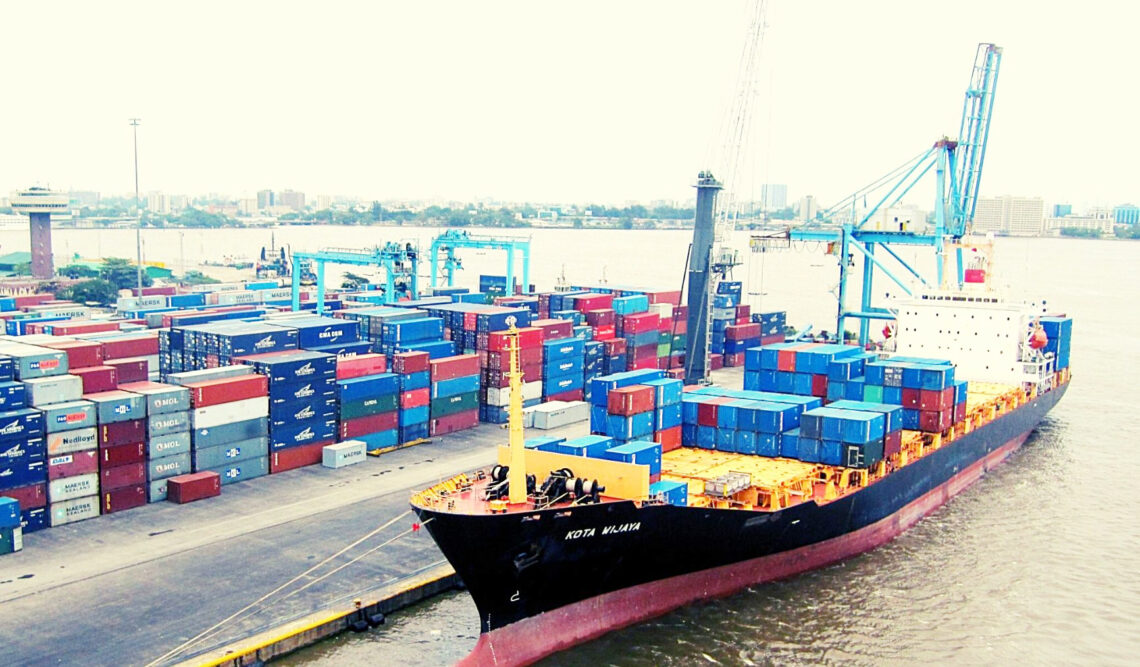NATIONAL ECONOMY can report that the fluctuating, inconsistent, and volatile exchange rate for clearing imported cargo at the nation’s seaports has been attributed as one reason for increased smuggling into the country from neighbouring countries.It was further gathered that due to the exchange rate fluctuation, importers now divert vessels with Nigerian-bound cargoes to neighbouring countries’ seaports for onward smuggling into Nigeria through the borders.
Nigeria is bordered to the North by Niger Republic, to the East by Chad and Cameroon and the West by Benin Republic.
According to statistics from the Nigeria Customs Service (NCS), seizures at various land borders between January and June 2024 were unprecedented in the Service’s history.
It was gathered that the Service’s anti-smuggling operations recorded a massive 2,442 seizures with a duty-paid value (DPV) of more than N25 billion from January to June 2024.
The 2024 half-year figure was 203 per cent higher than the Duty Paid Value (DPV) of seizures in the corresponding first half of 2023.
For instance, in the second quarter of 2024, the NCS made 1,334 seizures with a DPV of N17,564,384,378, representing a 121 per cent increase over the first quarter of 2024.
The top items seized include wildlife items, vehicles, arms and ammunition, foreign rice, pharmaceuticals, and narcotics, with 32 suspects in custody, the data made available to NATIONAL ECONOMY stated.
Also, currently, the exchange rate for clearance of cargoes at seaports currently stands at N1,564.929/$1, fueling inflation and the cost of cargo clearance at the seaports.
However, speaking on the development, the Centre for the Promotion of Private Enterprise (CPPE), has urged the federal government to peg the exchange rate for computing Customs import duty at the nation’s seaports to N1,000/$1.
The Centre, however, argued that the high exchange rate, in addition to fuelling inflation and increasing production costs, is responsible for the diversion of cargo to neighbouring countries’ seaports and massive smuggling through the land borders.
According to CPPE director Dr Muda Yusuf, cargo diversion to neighbouring countries and smuggling would also jeopardise the realisation of the Customs revenue target.
Yusuf, the former director general of Lagos Chamber of Commerce and Industry (LCCI), appealed to President Bola Tinubu to peg Customs duty exchange rate at N1000/$1 for the next six months in the first instance through an Executive Order.
Dr Yusuf said the high and volatile exchange rate for import duty assessment is fueling the already high inflation, increasing production and operating costs for manufacturers and other businesses.
He stated that the volatile exchange rate would worsen the cost-of-living crisis, putting maritime sector jobs and investments at risk and weakening investors’ confidence.
“CPPE is worried that the problem of the prohibitive and unpredictable exchange rate for cargo clearance is yet to be addressed by the government. We believe it is a significant policy adjustment that must complement current measures to address the current cost-of-living crises in the country. The high and volatile exchange rate for import duty assessment is fueling the already high inflation, increasing production and operating costs for manufacturers and other businesses, worsening the cost-of-living crisis, putting maritime sector jobs and investments at risk and weakening investors’ confidence.
“There is also the added heightened risk of cargo diversion to neighbouring countries and smuggling, which could jeopardise the realisation of customs revenue targets. This situation additionally creates serious competitiveness challenges for ethical and compliant investors in the economy because of their relatively elevated production and operating costs.
“In light of this, the CPPE is reiterating its appeal to the presidency to peg the customs duty exchange rate at N1000/$ for the next six months in the first instance through an Executive Order. This resonates with the current federal government’s commitment to alleviating the hardships on the citizens and the burden on businesses.
“It is gratifying that the Presidential Committee on Fiscal Policy and Tax Reforms made similar recommendations. The Organized private Sector (OPS) had also strongly advocated in the same vein. The exchange rate has been changing almost weekly, which is not good for the investment environment.
It is important to clarify that this proposition does not prejudice the present administration’s ongoing foreign exchange reforms.
“Contrary to concerns expressed in some quarters, the adoption of lower exchange rate for computation of customs duty would not undermine the current foreign exchange reforms. It is not a request for a concessionary exchange rate for forex allocation.”
Yusuf, however, stated that matters relating to international trade should be within the remit of the Federal Ministry of Finance and the Federal Ministry of Trade and Investment and not the CBN.
“We are dealing with two separate issues here. One is about foreign exchange policy, and the other is purely a matter of trade policy. The responsibility of the CBN should end at the point of opening Form M for importers within the context of extant foreign exchange policy. All other matters relating to international trade should be within the remit of the Federal Ministry of Finance and the Federal Ministry of Trade and Investment.
“These are the institutions statutorily responsible for trade policy issues. The CBN’s determination of the customs duty exchange rate is an intrusion into trade policy space that needs to be urgently corrected.
“Meanwhile, to permanently address this matter, it might be necessary to amend the Customs Act to assign the responsibility of determining the applicable exchange rate for import duty payment to the fiscal authorities. This would bring such rates in alignment with the government’s extant trade policy direction and remove the current avoidable uncertainty around international trade.
“This is what our peculiar circumstances demand. It is important to localise and adapt economic policy models to our peculiar circumstances.”
For his part, Dr Kayode Farinto, the managing director of Wealthy Honey Investment, a clearing and forwarding company, said the volatility of the exchange rate has reduced cargo importation at the nation’s seaports.
Giving statistics, Farinto said vehicle importation into the country has dropped to about 55 per cent, containers to 30 percent, and bulk cargo to about 20 per cent.
He argued that in the last few months, there has been a significant drop in the volume of cargo in the country, attributing it to the instability of the exchange rate.
“We have bulk cargo, containerised goods, and vehicles. The level of import on cars has dropped to about 55 per cent, the level of import on containers has fallen to about 30 per cent, and on bulk cargo, it is about 20 per cent. So, we are not winning the war.
“The situation has not been very rosy for us in the industry, particularly the freight forwarders. We are not faring well. We have some people who have left the job, some remain thinking tomorrow will be a better day, and we have some who have died. I can tell you that we lost a lot of members this year.
“I predict that the import volume will continue to nosedive if nothing is done. I’m also an importer. If you want to appreciate what I’m saying, ask the manufacturers’ association what they have imported in the last few months.”
The only solution is for us to have a predictive exchange rate for Customs purposes alone. It’s not too much to ask. The exchange rate has been fluctuating. A cent is important to every businessman because if you’re using a bank loan, you have to take all these into consideration.
“We had a week where we have more than five exchange rates. That is not too good for our economy; it is also not good for planning,” the former acting president of Association of Nigerian Licenced Customs Agents (ANLCA), said.
He noted that the situation has also been difficult for freight forwarders, with many losing their jobs and some even losing their lives.
“Customs must negotiate with the CBN, draw them to the minister of finance, seat them on a round table, and involve us. I have suggested a tripartite meeting between CBN, Customs and the Ministry of Finance or CBN, Customs and freight forwarders. We will be able to tell the CBN that what they are doing is not helping the economy, and if we continue like this, the economy will go up in shambles. Perhaps they will listen to us, but until now, nothing has been done about it,” he stated.





